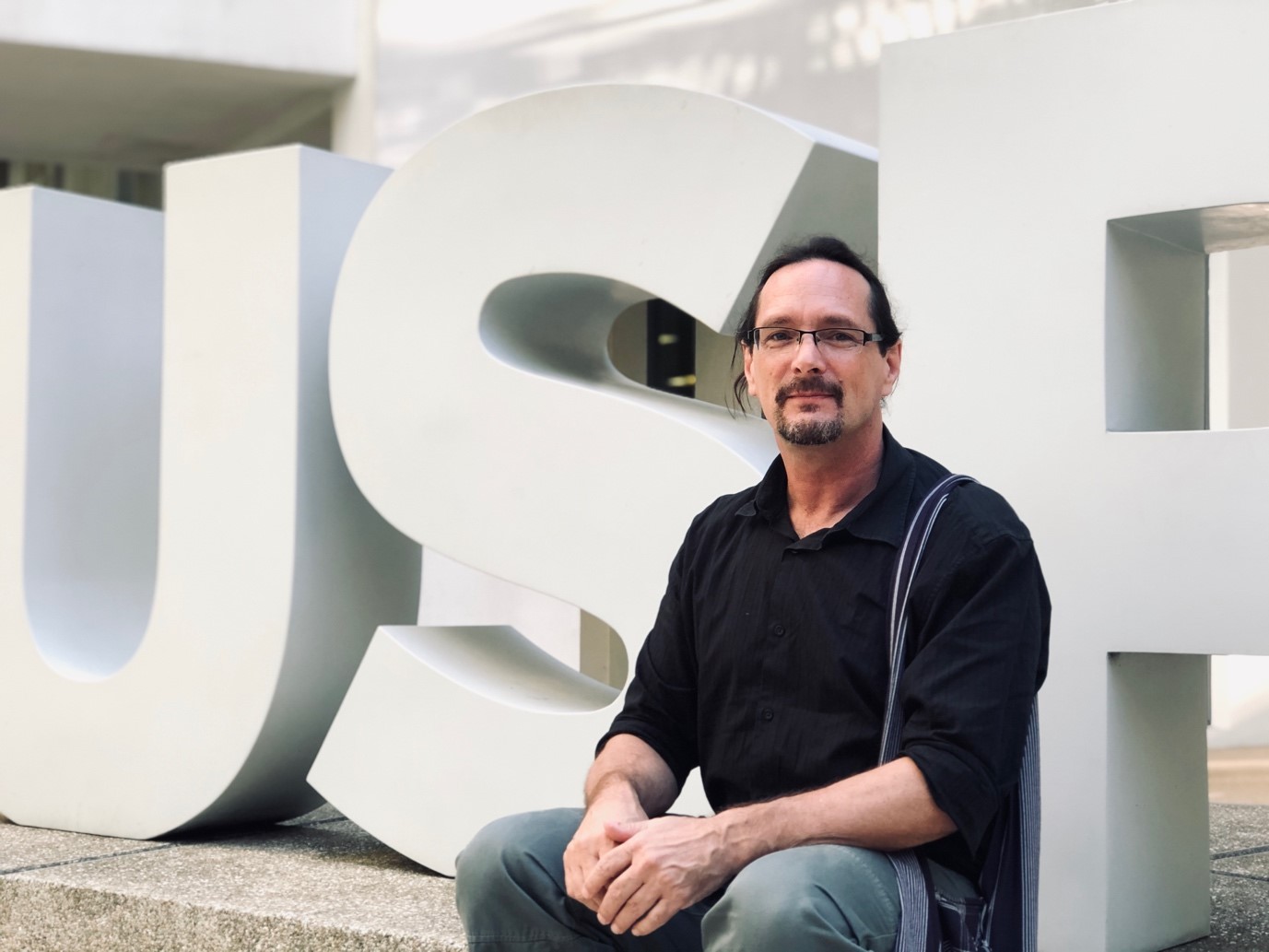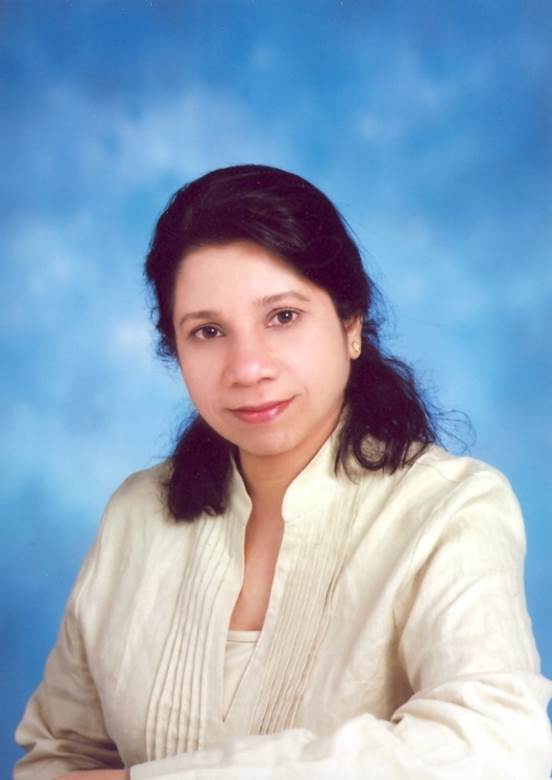This new semester is unlike any other. It’s harder to meet or catch up with your professors in person, to bump into them along the USP learn lobes or to pop your head into their offices. But where there’s a will, there’s a way. This pandemic should not stop you from getting to know our wonderful professors, their interesting research interests as well as the things they love to do outside of teaching. Here, we bring you interviews of two professors done by student writers Jen and Ashley before the pandemic. Get to know a little more about A/P Peter Vail and A/P Chitra Sankaran through them.
We hope this helps draw us closer in USP, in small cumulative ways, even if we cannot be catching up with one another in person for a while.
Published: 27 August 2020
Making the Mundane Exotic with Associate Professor Peter Vail
By Jen Chik Hui Xin (English Literature + USP, Class of 2022)
Jen is a student writer for USP Highlights.
A/P Peter Vail’s classes are well-loved by USP students past and present—he has been awarded the USP Teaching Excellence Award multiple times and is on the USP Teaching Honor Roll, a testament to his teaching expertise. This semester, he is teaching the modules “UWC2101D Writing and Critical Thinking: Narrative in Everyday Life” and “UHB2207 Language, Cognition and Culture” remotely from his home in Thailand.

I had heard of Prof Vail from seniors who had taken his classes, even before I knew who he was. When I took his Writing and Creative Thinking (WCT) module “Narrative in Everyday Life” in my first semester at USP, I learnt for myself why his classes are well-loved—Prof Vail injects his signature dry, witty brand of humor into everything he does, whether it is in the everyday corridor conversations he has with his students or in the classroom. Apart from the WCT module, Prof Vail also teaches the Inquiry module “Language, Culture, and Cognition” which is received with the same enthusiasm by the USP community and draws students from all disciplines alike. Occasionally, he also teaches field-based ethnography modules like the “USE2315: Participatory Social Development in Southeast Asia” in the summer, where he brings students to remote mountain villages in places such as Thailand and Laos. Though these modules might appear to be daunting and intense to many, he promises that they will also be highly rewarding.
His expertise in teaching does not go unrecognised—he has been awarded the USP Teaching Excellence Award in numerous years. When asked about his insights on teaching, Prof Vail quoted Pierre Bourdieu’s old adage on anthropology—to “make the mundane exotic and the exotic mundane”. For Prof Vail, this refers to the sense of discovery that arises from making interesting insights and connections in our work. In particular, he speaks of taking mundane, everyday practices and by examining them, discovers the rich worlds of meaning and unexpected complexity they hold. It is this very sense of discovery that Prof Vail seeks to foster in the classes he teaches. From my experience in Prof Vail’s WCT module, he was able to use something as simple as the daily exchanges (or even gossip sessions) we had with our friends (which we take for granted), and showed us how these interactions revealed certain aspects of our identities, encapsulating his hopes of making “the mundane exotic”.
On his professional pursuits, Prof Vail shared that he first moved across the globe to Thailand in the late 1980s, after completing his undergraduate studies in Rhetoric at the University of California, Berkeley. He moved there without a plan and almost no money—and found it wonderful. After a few years (i.e. when the funds dried up entirely), he returned to the US and enrolled at Cornell University to study anthropology. Soon after, he earned another degree in Linguistics at Georgetown University. “Clearly, whatever talents I may have do not lie in financial planning,” he remarked of his decisions, with his characteristic humor. In 2009, Prof Vail moved from Thailand to Singapore and began work at NUS and USP, back when USP was still housed at the old part of the Kent Ridge campus. Today, he still spends much of his time in Thailand, and his family lives in Chiang Mai, Thailand. His research, too, is closely related: it involves issues in the lives of the stateless minority populations in the uplands, and a variety of cultural and linguistic issues in the lowlands of Thailand.
Outside of work, Prof Vail spends his time on a wide range of interests. They vary from photography and video, to cooking tamales, and surfing. In particular, though, he enjoys woodworking and building big, rickety wooden houses whenever he is in Thailand. He has built three of them in the last few years, and jokes that he must now find a way to enjoy the endless litany of maintenance and repairs that such houses require. More recently, he bought an old decommissioned Huey helicopter, and was hoping to work on turning it into something completely different and fun!
It is clear to me that Prof Vail consistently applies his belief in teaching to various aspects of his life. He carries the same spirit of wonder and curiosity in looking at life, especially the things we take for granted. It was a delightful experience just corresponding with Prof Vail once again, and I hope that USP students will be able to, like him, make the mundane exotic.
Meet Associate Professor Chitra Sankaran: The Lifelong Learner
By Ashley Goh Lee Ann (Pharmaceutical Science + USP, Class of 2022)
Ashley is a student writer for USP Highlights.
A/P Chitra Sankaran is no stranger to USP. In fact, she was in the pioneering batch of USP professors 20 years ago. She marvels about how USP used to operate out of a tiny little space at the Faculty of Arts and Social Sciences (FASS) in NUS, in contrast to the extensive facility nestled in the lush University Town (UTown) today. She was a key part of the group of staff who visited Harvard University, in the early years of USP, in developing the structure and pedagogy for one of USP’s core curriculum, also known dearly as Writing and Critical Thinking (WCT). This semester, she is teaching an inquiry tier module titled “USE2324 Gender Ecology in Asia”.

Graduating from University of London with a doctorate in Anglophile Literature, Prof Sankaran, who is passionate about literature, teaches at USP and at the NUS Department of English Language and Literature. Her USP module this semester – “USE2324 Gender Ecology in Asia” – explores the intertwining concept of gender issues and the environment. When asked how this intriguing revelation came about, she says that this ideological perspective is not just a passing thought, but very much teeming and alive. One just has to look to metaphors such as ‘Mother Earth’ and ‘Virginal Land’ which suggest that symbolically, women and nature are connected. Reflected consistently through texts from Myanmar, Philippines and Singapore is the notion that females and land are presumably viewed as territories for male conquest. These tropes of subdominant women and the flora and fauna continually resurface, and while some Asian women are aware of it, others remain in oblivion. Such a novel topic makes many a USP students curious. The level of engagement in class is gratifying, seeing all but two of her students from non-humanities majors bringing their own perspectives to the discussion table.
Prof Sankaran shared, “To me, USP is a way to experiment with ideas outside of your discipline. So, I don’t come to USP with any set goals or ideas. It’s more like revisiting something that excites me when I started my career in NUS, and still continues to spark a flame in me, even after nearly two decades.”
She expressed that the small class ratio in USP allows her to give a lot of qualitative attention to her students. Further toying with the idea of what other modules she might want to offer at USP, she is exploring the possibility of teaching literature to non-literary students through detective fiction, murder mysteries and popular fiction. The importance of knowing how to analyse a text is, as she describes, watching a good film and wanting to debate about it. Of course, this is an essential life skill seeing that students engage with text over the course of their lives. She hopes she can help her students hone this ability, and learn from their different perspectives at the same time.
Outside of class, Prof Sankaran’s hobby has to be reading—she recommends Arthur C Clarke. When she is not reading about Quantum Physics or Geography, she takes long walks almost every day around her neighborhood. Eight-kilometre walks are nothing to her, so perhaps, students like us should not whine that the UTown bus stop is ‘too far’ from Cinnamon College (USP). She loves science fiction films, but not superhero movies. One of her favourites is Avatar, as in this film, the problems faced in fantasyland, Pandora, is meant to reflect our modern world. She opined, "The film artfully explores the human condition through fantasy." She also loves travelling, and her bucket list destination has to be Antarctica, for it is one of the least explored territories. Most importantly, she loves sharing the joys of learning with students. Funnily enough, her ex-students even invited her to their wedding, surprising her with the fact that they first met in her feminism tutorial class!
Prof Sankaran is an advocate of lifelong learning and multidisciplinary thinking. This unique environment within USP and NUS is something she is passionate about. The mind is always young, and constantly wanting to learn. She espouses that she never lets her mind be shackled by any ideology and convictions, and one should not be afraid to question any convictions in life. “Ideology can be so normalised that one doesn’t realised they’ve locked themselves in an echo chamber. Tertiary education is a privilege and a great opportunity to seek what is beyond our mental comfort zone.” Her life philosophy aligns with why she enjoys teaching and academia so much. She advised, “Don’t be afraid to fail. You shouldn’t have to constantly pressurise yourself to succeed. The most thoughtful people are those who have experimented, failed and related to everyone. Everything is a learning process.”

